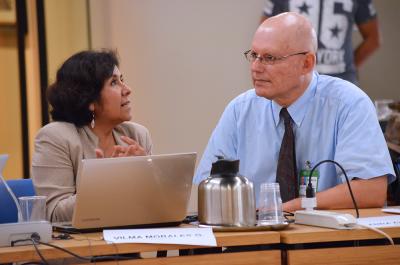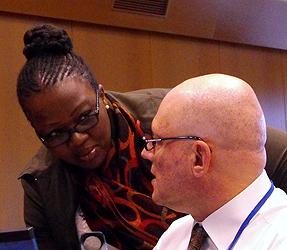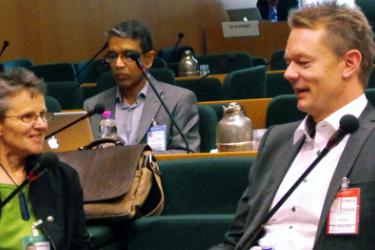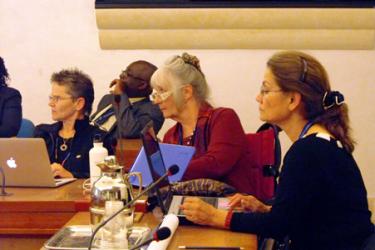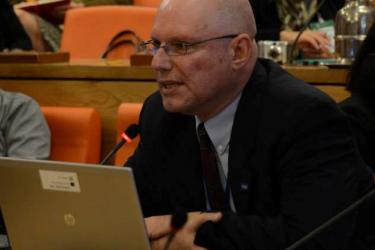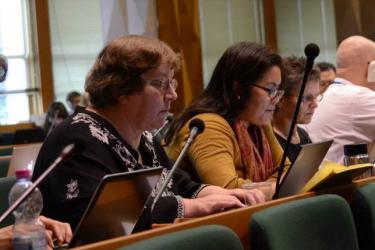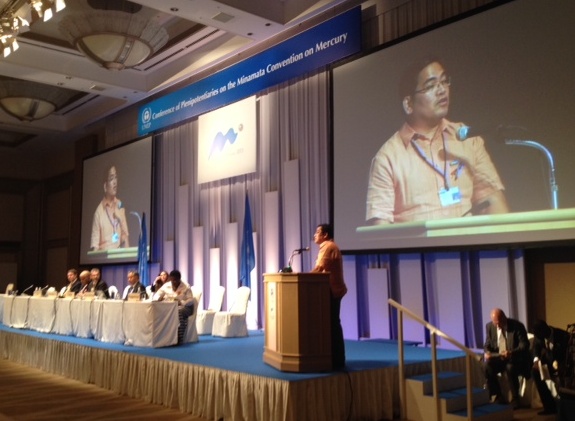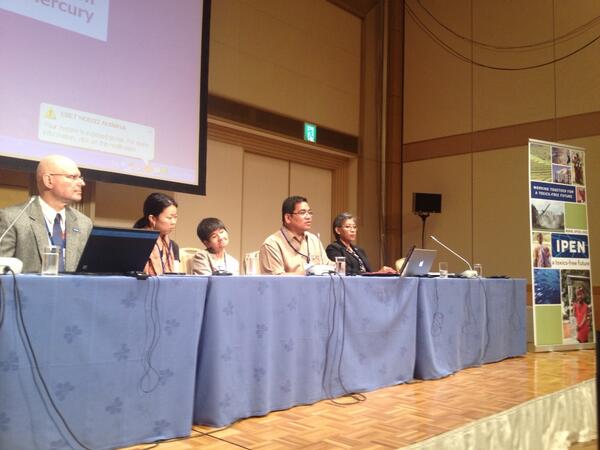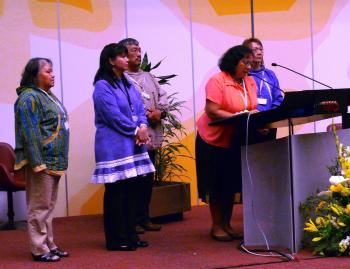IPENers participated in the Ordinary and extraordinary meetings of the conferences of the parties (COP) to the Basel, Rotterdam and Stockholm conventions that took place from 4 - 15 May, 2015 in Geneva, Switzerland. Although the Stockholm Convention COP was IPEN’s main focus, IPEN also participated in the Basel and Rotterdam Convention meetings, as did some of IPEN’s partners, such as Basel Action Network (BAN), Pesticide Action Network (PAN), and Rotterdam Convention Alliance (ROCA), amongst others. Some positions and documents from partners can also be found on this site.
Delegates from more than 90 countries took the unprecedented step of voting for a global ban on pentachlorophenol – a proven toxic pesticide and contaminant in wildlife and human biomonitoring studies. The historic vote came at the combined meetings of the Basel, Rotterdam, and Stockholm Conventions, which usually make decisions by consensus, after India repeatedly blocked action.
Read the entire press release, as well as one from IPEN Participating Organizations Alaska Community Action on Toxics and International Indian Treaty Council, here (English / español)
The EU has pushed dangerous cleanup standards for three toxic flame retardant chemicals widely used in building insulation, upholstery and electronics (HBCD, PentaBDE, and OctaBDE) at a UN meeting of chemicals treaties in Geneva, Switzerland. All three toxics chemicals are listed in the Stockholm Convention for global elimination. They are ubiquitous in the environment globally and can disrupt human hormone systems, creating potential adverse effects on the development of the nervous system and children's IQ.
Read the entire press release here (English / español)
7 May: Science Fair opens in Geneva
At the CICG building in Geneva where the Basel, Rotterdam and Stockholm (BRS) Convention Conferences of the Parties (COPs) are taking place, a Science Fair - "From Science to Action: Workig for a Safer Tomorrow" - opened on 7 May and will host events and provide information for conference delegates for three days. Booths at the Fair cover the following topics:
- Accessing Science through the Clearing House Mechanism
- Scientific Processes under the BRS Conventions
- Scientifically Sound POPs Monitoring
- Science Supporting Safe and Efficient Solutions for Hazardous Industrial Chemicals
- Science Supporting Risk Reduction from Hazardous Pesticides
- Science Providing Sustainable Waste Management Solutions: Turning waste to resource
- Science Empowering the Public: How are we personally affected and what can we do?
- From Science to Action: Examples of Successful Actions towards a safer tomorrow
IPEN contributed materials and information to three of the booths: Solutions for the Destructions of POPs Wastes factsheet; Global fish and community mercury monitoring, Survey of PBDEs in recycled carpet padding and Toxic recycling posters, and a zero waste poster and postcards created with the Global Alliance for Incinerator Alternatives (GAIA).
Additionally, Meriel Watts (Pesticide Action Network Asia & the Pacific / IPEN POPs Pesticides Working Group Chair) participated in a Science Fair discussion on “Science supporting decisionmaking on chemicals and wastes management” on 8 May with other experts from the POPs Review Committee (POPRC).

5 May: NGO Rights Preserved
A victory in Geneva today as NGO rights were preserved after plenary decided not to take a new decision, but to stick with the outcomes from 2013 which ensured the participation of the most vulnerable non-governmental and civil society organizations (NGOs and CSOs) in the Basel / Ritterdam and Stockholm Convention Conferences of the Parties.
Side Events
On 8 May, IPENer Senior Science and Technical Advisor Joe DiGangi participated in a side event convened by UNEP and UNIDO: "Addressing Hazardous Substances within the Life-Cycle of Electrical and Electronic Products - Efforts till date AND e-waste management in developing and transition countries."

On 6 May, IPEN held a side event: "Waste & Synergies between Basel and Stockholm Conventions: Understanding the Links and Implications"
This side event:
- Provided insights to E-waste activities in Africa & other regions
- Provided examples of recycled & reused POPs in new products
- Outlined the international policy landscape & synergies among the Conventions on these issues (ie, Low POPs, Recycling exemptions, Guidelines for Transboundary Movement of E-waste)
More information
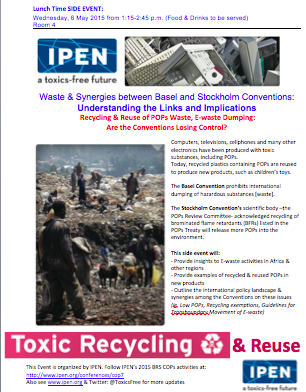

On 5 May, IPENers participated in two side events:
IPEN Senior Science and Technical Advisor Joe DiGangi was a panelist in: "The Links: Persistent Organic Pollutants and Endocrine Disrupting Chemicals" organized by the United Nations Environment Programme, World Health Organization and Basel / Rotterdam / Stockholm Secretariat. Room 3 at CICG Building, 13:15.
Vi Waghiyi, from IPEN Participating Organization Alaska Community Action on Toxics, was a panelist in: "Linkages between human rights and hazardous substances and wastes" organized by the United Nations Environment Programme Regional Office for Europe, Basel / Rotterdam / Stockholm Secretariat and the United Nations Special Rapporteur on the implications for human rights of the environmentally sound management and disposal of hazardous substances and wastes. Room 4 at CICG Building, 13:15.
See Vi Waghiyi's presentation here
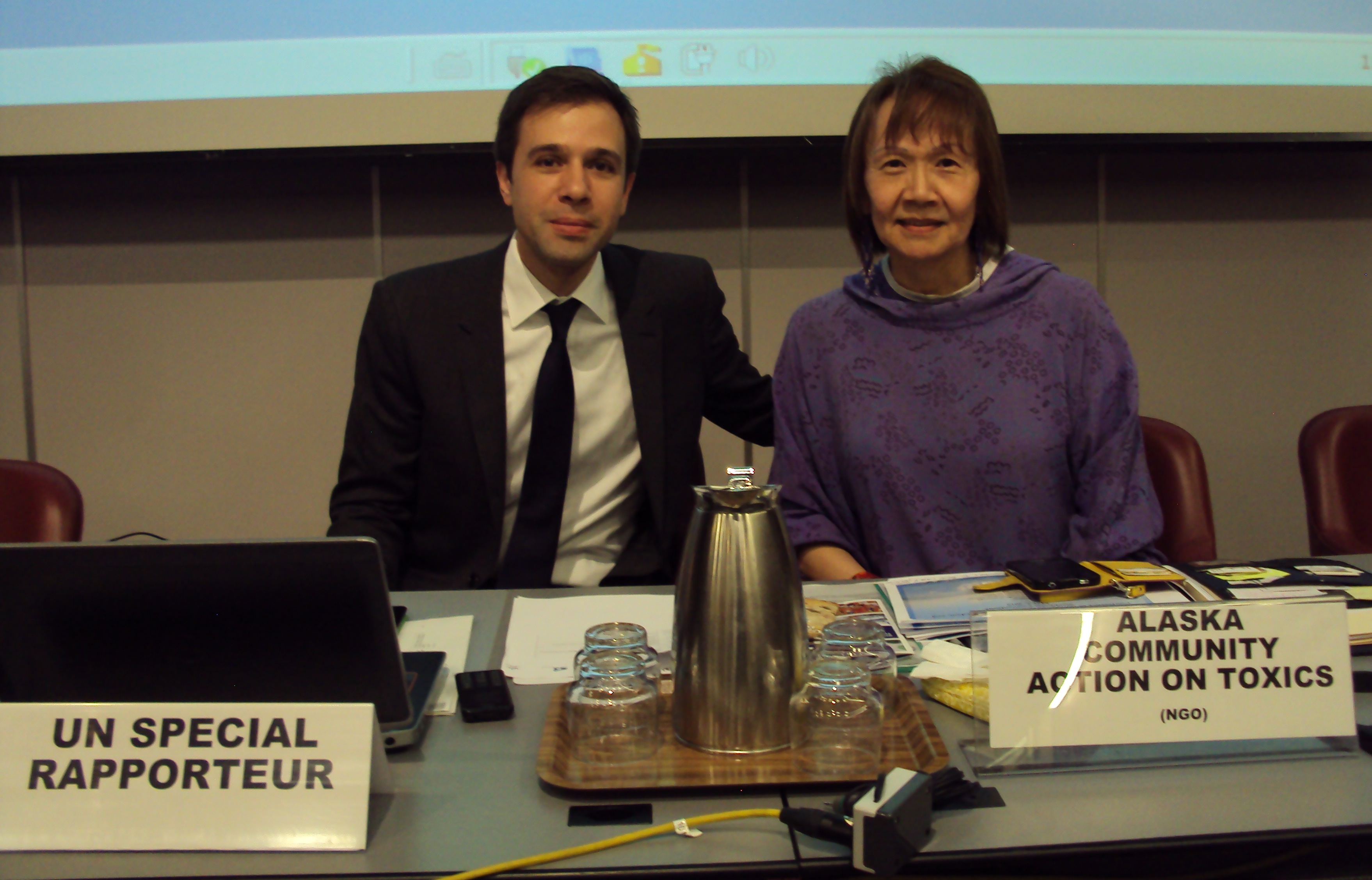
4 May, 2015:
IPEN is participating in the twelfth meeting of the Conference of the Parties to the Basel Convention (BC COP-12), the seventh meeting of the Conference of the Parties to the Rotterdam Convention (RC COP-7), and the seventh meeting of the Conference of the Parties to the Stockholm Convention (SC COP-7) currently taking place in Geneva, Switzerland from 4 to 15 May, 2015.
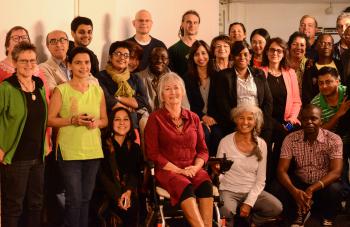
28 April, 2015:
IPEN Quick Views of Stockholm Convention COP7
In the run-up to the Stockholm Convention's 7th Conference of the Parties, IPEN has released its "Quick Views of Stockholm Convention COP7." This document is a summary statement of IPEN views on issues that COP7 will be called upon to address, including POPs wastes, tecnical assistance and regional centres, rules of procedure, compliance, listing of pentachlorophenol (PCP) in Annex A, listing of hexachlorobutadiene (HCBD) in Annex A and C, exemptions and acceptable purposes, evaluation of PFOS, and more.
11 March, 2015:
IPEN Guide to Listing the 2015 POPs Candidates
The Stockholm Convention established a science-based process for new persistent organic pollutants (POPs) under the Stockholm Convention. The Convention recognizes that a lack of full scientific certainty should not prevent a candidate substance from proceeding in the evaluation or listing and clearly mandates Parties to decide on listing “in a precautionary manner.” This new Guide (English /русский /español / français / العربية) highlights three new candidates for listing in the Convention in 2015 - pentachlorophenol, hexachlorobutadiene, and chlorinated naphthalenes - and provides the POPs Review Committee's recommendation for which annex the POPs should be listed under in the Convention, the chemicals' uses, alternatives, adverse effects, and more.
See the Guide here





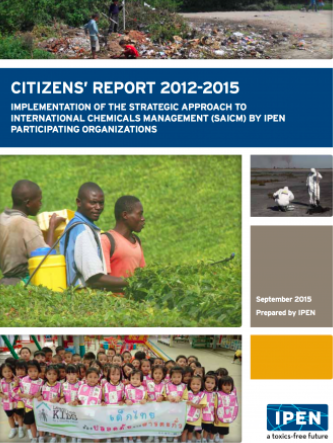
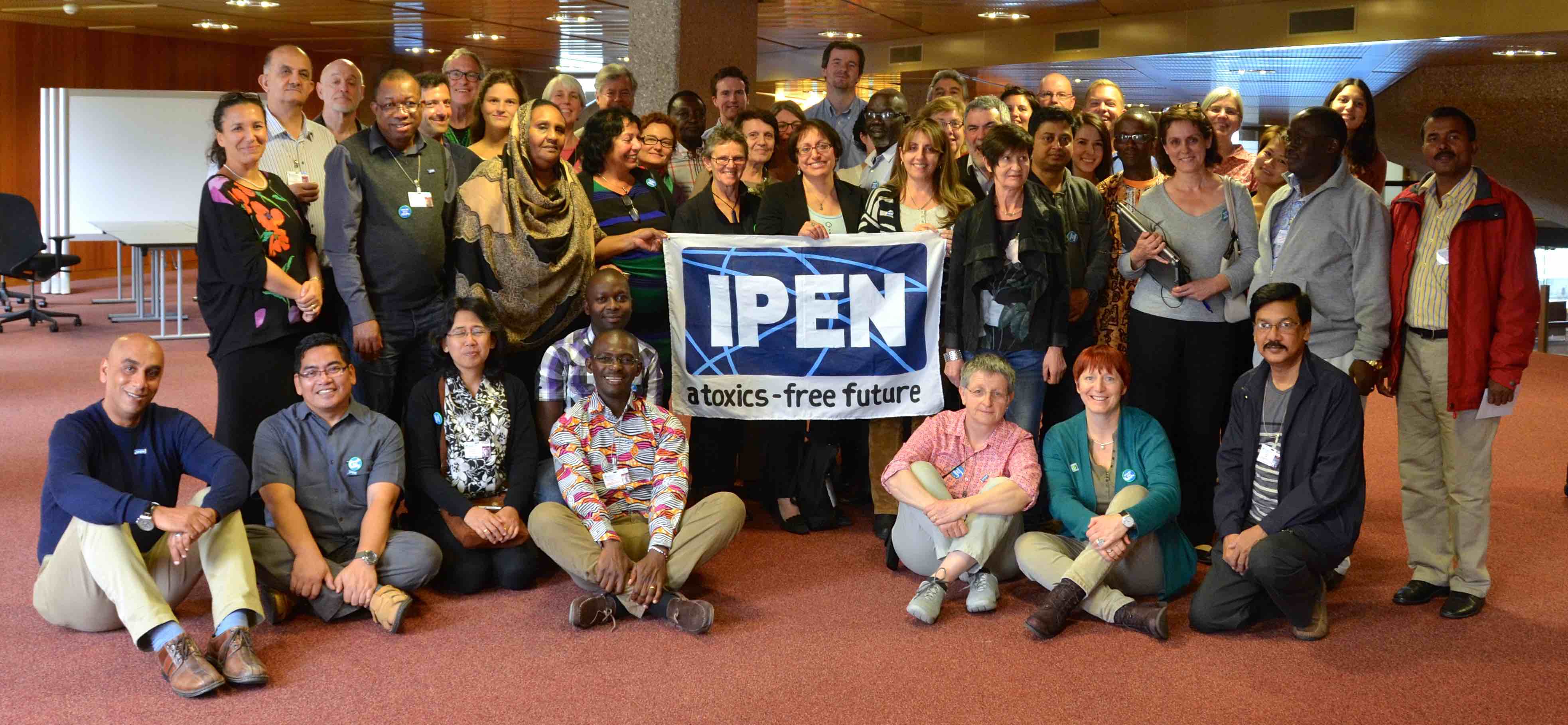







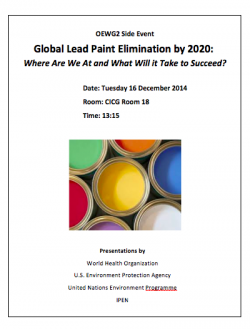
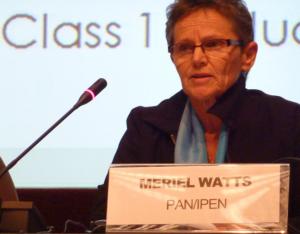
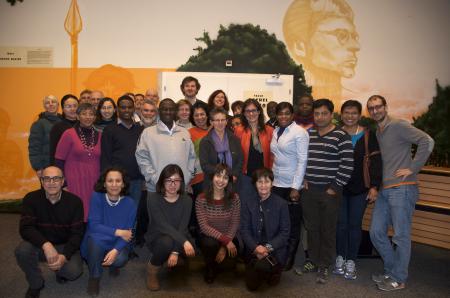
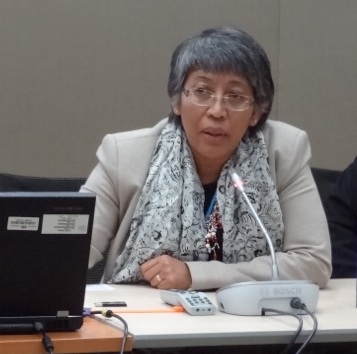
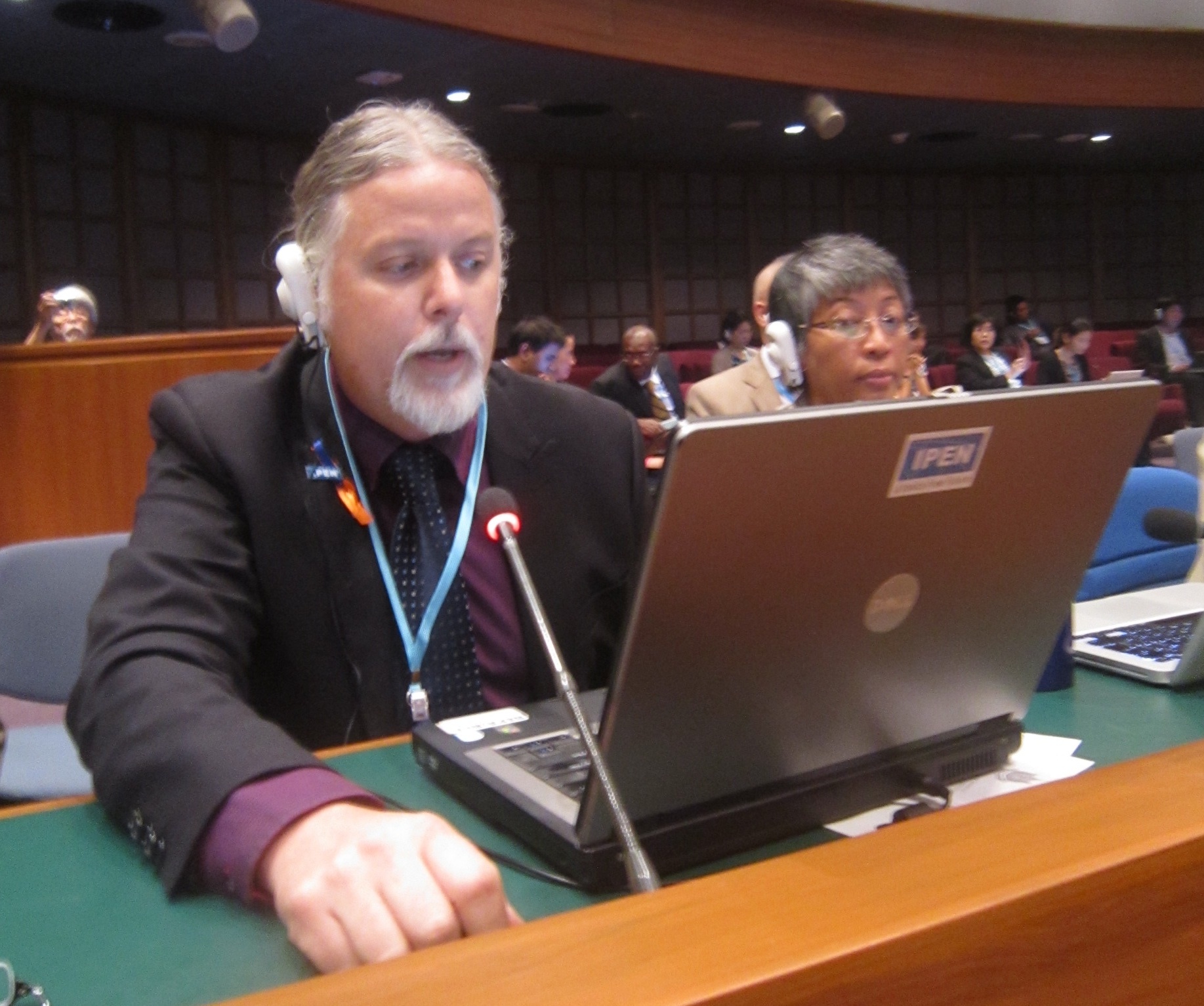
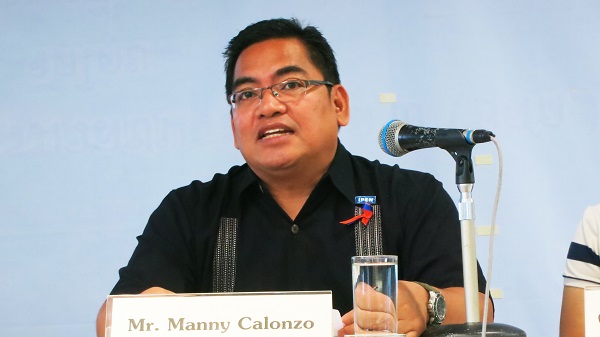
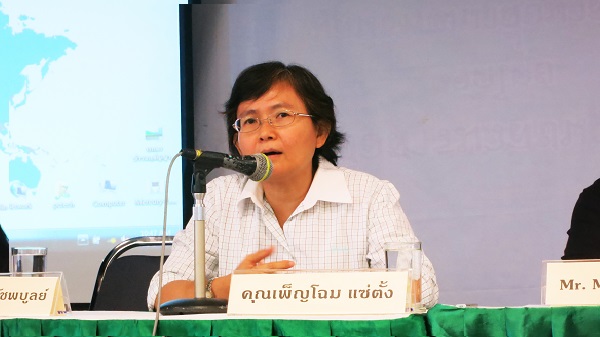
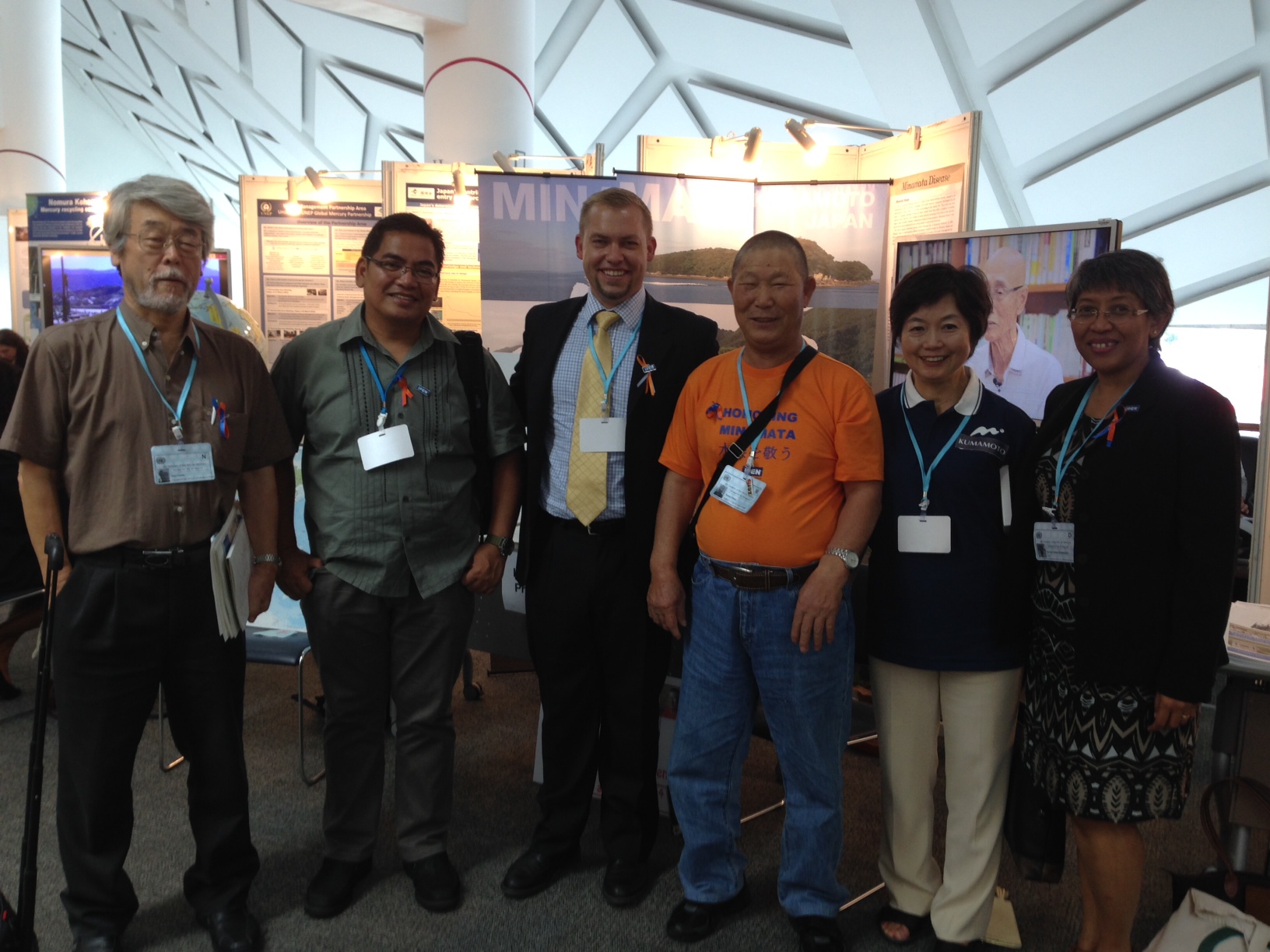
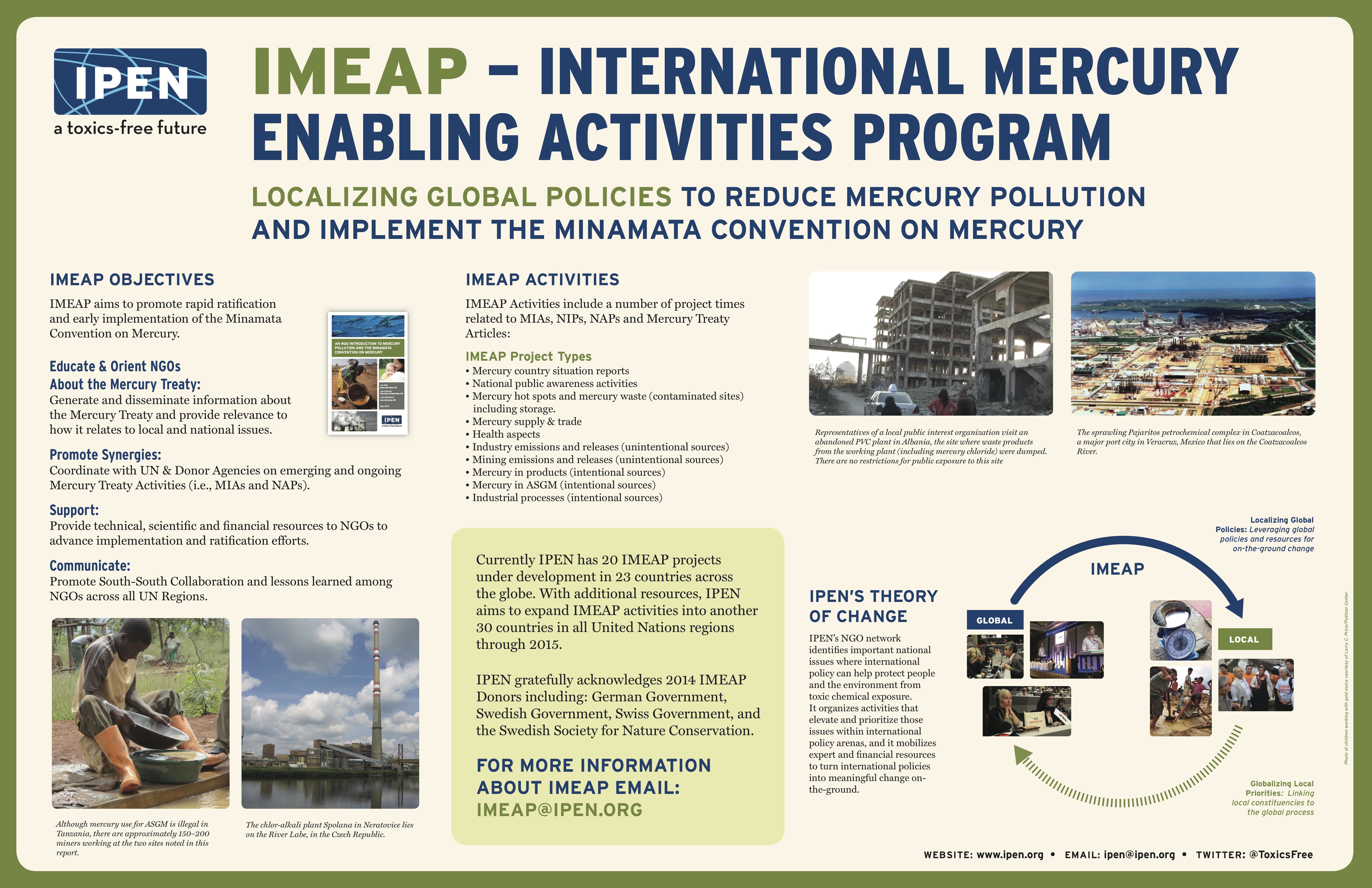
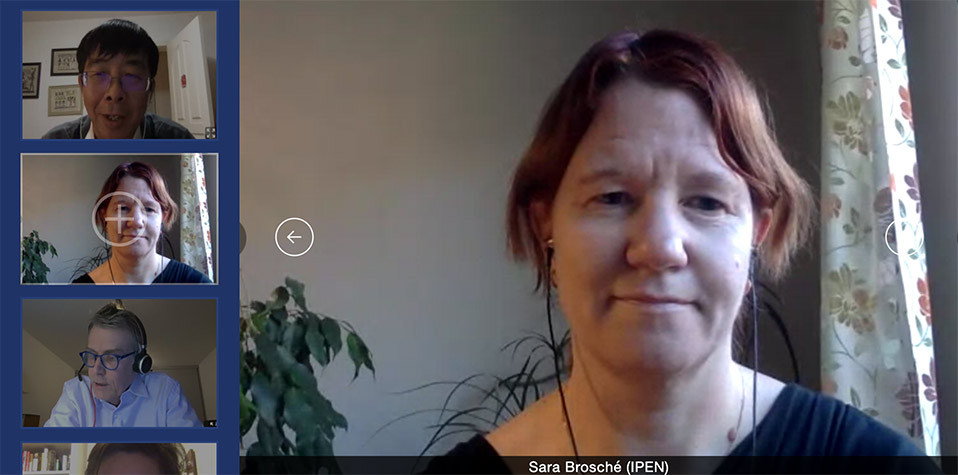 The Persistent Organic Pollutants Review Committee met virtually to discuss important additions to the chemicals listed in the Stockholm Convention. While IPEN is deeply disappointed that a decision on the flame retardant declorane plus (DP) was deferred, the committee decided to move forward on UV-238 and methoxychlor.
The Persistent Organic Pollutants Review Committee met virtually to discuss important additions to the chemicals listed in the Stockholm Convention. While IPEN is deeply disappointed that a decision on the flame retardant declorane plus (DP) was deferred, the committee decided to move forward on UV-238 and methoxychlor.

